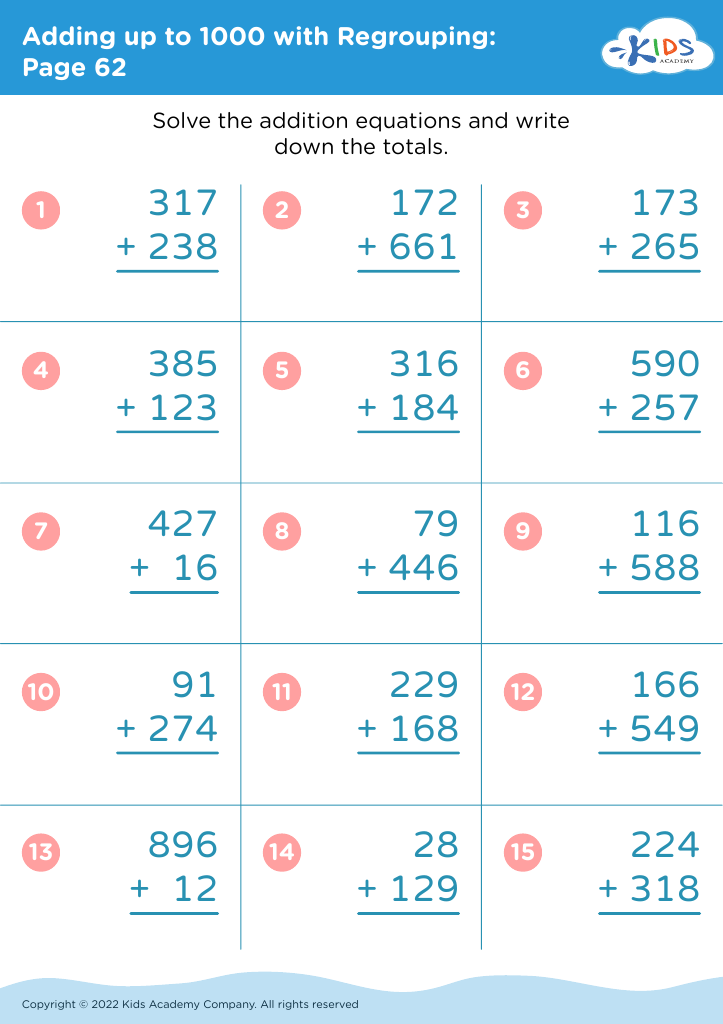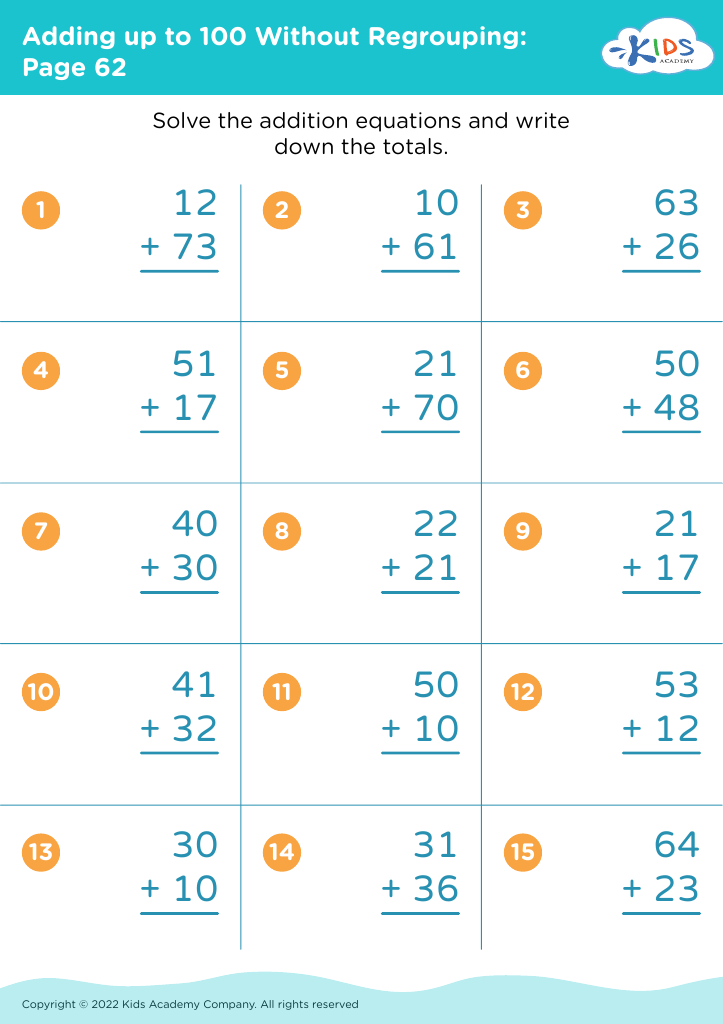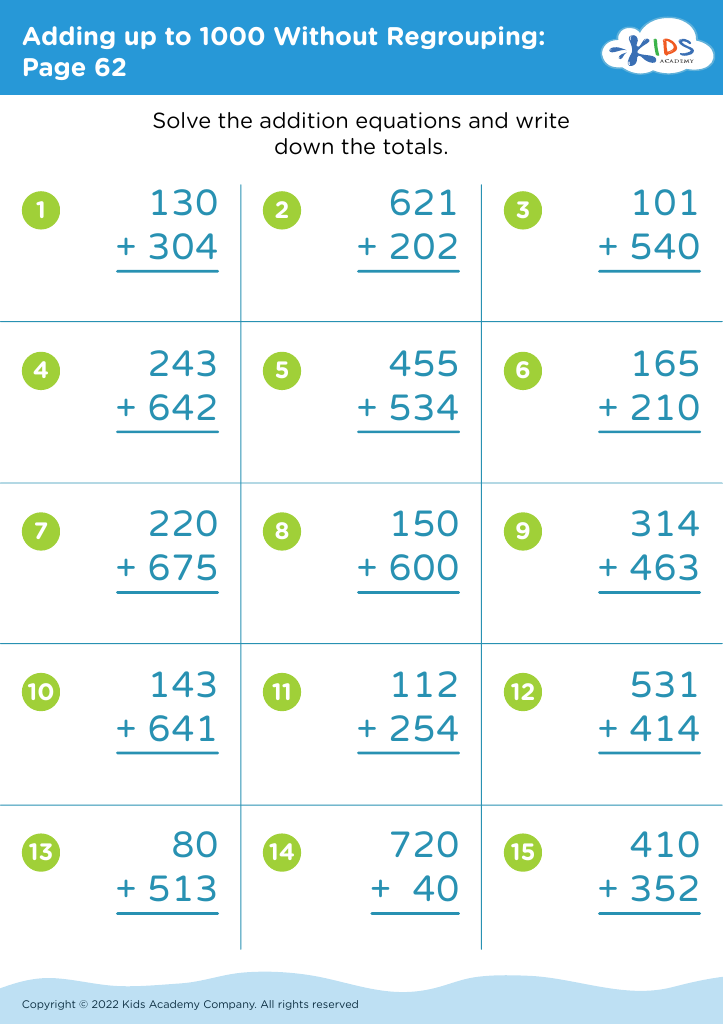Identifying fractions Addition Worksheets for Ages 4-8
4 filtered results
-
From - To
Welcome to our Identifying Fractions Addition Worksheets designed for children aged 4-8! These engaging and interactive worksheets help young learners grasp the concept of fractions while mastering addition skills. Each worksheet features colorful visuals and fun exercises that make learning enjoyable and effective. Kids will explore various fraction representations, allowing them to identify and add fractions confidently. With step-by-step guidance and varying levels of difficulty, our resources cater to all learners, ensuring a solid foundation in math. Perfect for home or classroom use, these worksheets will inspire a love for math in your child! Start their learning adventure today!
Identifying and understanding fractions from an early age is crucial for young learners, especially those between the ages of 4 to 8. At this developmental stage, children are starting to grasp basic math concepts, and introducing fractions lays the foundation for more advanced mathematical thinking.
When parents and teachers focus on identifying fractions, they help children understand the concept of parts of a whole, which can relate to everyday experiences, such as sharing a pizza or dividing chocolate. This hands-on comprehension promotes a positive attitude toward math and nurtures critical thinking skills.
Furthermore, mastering fraction addition enhances a child's ability to solve complex problems in later grades. It fosters a growth mindset by encouraging them to take on challenges and make sense of numbers intuitively.
Additionally, engaging in fraction activities together improves parent-child or teacher-student relationships by creating meaningful learning experiences. These interactions enrich vocabulary and communication skills, bridging the gap between mathematical concepts and real-world applications.
In short, an early grasp of fractions is not just about math skills; it's about developing essential life skills such as sharing, critical thinking, and problem-solving, which parents and teachers should prioritize.








.jpg)












